“Despite the critical role that rural communities play in global food production, more than 80 percent of the world’s extreme poverty remains concentrated in these areas. Hunger is increasing and we urgently need systemic changes at the scale of the challenges we face. EARTH is committed to food security, nature-positive agricultural practices, and new opportunities that increase prosperity around the world.”
Arturo Condo
President, EARTH University






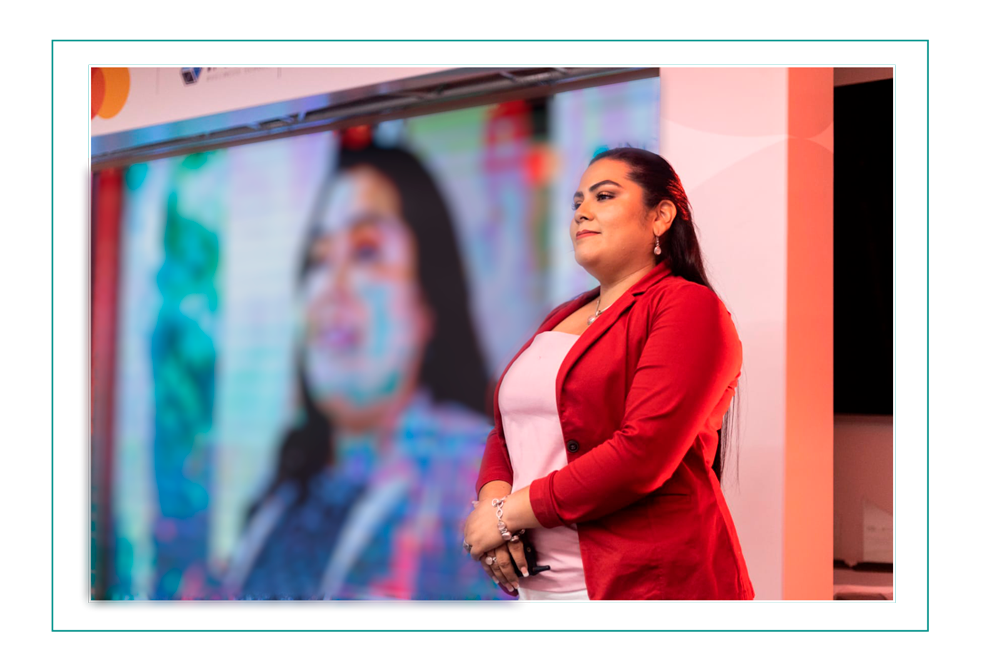
In 2021, Valodia Flores (‘09, Nicaragua) was named by Forbes Magazine as one of the 100 most influential women in Central America. She won first place in LEADS Mujer, a business support program for Central American women entrepreneurs, promoted by INCAE Business School, for which more than 1,700 women applied. In addition, she and her family have significantly grown Codornic, a company dedicated to the production and sale of quail eggs, creating jobs for 16 families. Valodia also currently serves as Agricultural Manager in a company dedicated to the cultivation of cassava in her country.
"In 2018, the unemployment rate in my country rose to 7%. We saw a number of people with no jobs, no opportunities, and no options. We decided to employ 2 quail farmers and then increased to 8, until we had the support from the 16 we work with today. This is an opportunity for their families because it is a project that allows them to have a fixed income even if they are producing in an extremely small area."
Once again, the EARTH University
alumni community joined forces to provide scholarships
for new generations of change agents to be able to study at EARTH.
Their solidarity, which also included
gifts from their families, friends and organizations,
helped raise US$230,055 in 2021, which included
a generous match from an anonymous donor.
Gifts were
received from:
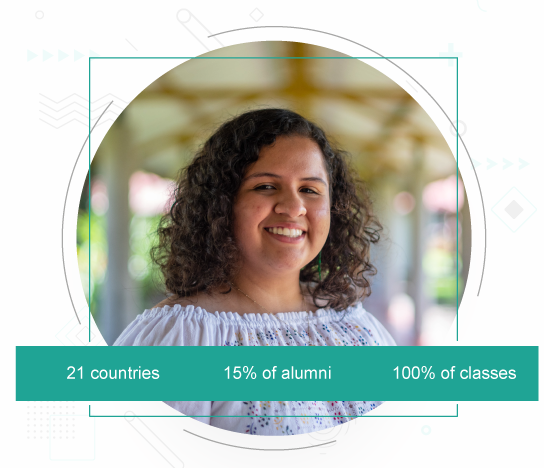
“EARTH’s alumni impacted not only my life, but my family’s, too. I hope to also impact the next generation, with whom I can share my knowledge. Not everyone has this opportunity, so I hope that I too can help open doors for others. I want to be a change agent.”
Jimena López (‘24, Guatemala)
Scholarship recipient
Through EARTH Futures, we seek to grow the University’s
contribution towards building more
sustainable communities and food systems in rural areas
around the world.
One of our flagship programs is The Mastercard Foundation–EARTH University
Fellowship Program launched in 2021. The program’s primary
objective is to facilitate effective transitions and
help accelerate the impact of recent graduates through
one-year employment and entrepreneurship
opportunities in the agriculture and rural development
sector in Africa.
In 2021, our first cohort of 16 Fellows participated in
the Fellowship Program, hosted by a variety of private
company, NGO and business incubator partners
in 8 countries across the African continent.
“Growing professionally means gaining more experience and it’s exactly what the Fellowship Program has done for me. It has given me an opportunity and a platform where i am able to accomplish this.”
Precious Akampurira (‘19, Uganda)
MCF-EARTH Fellow with her start-up, Vascape
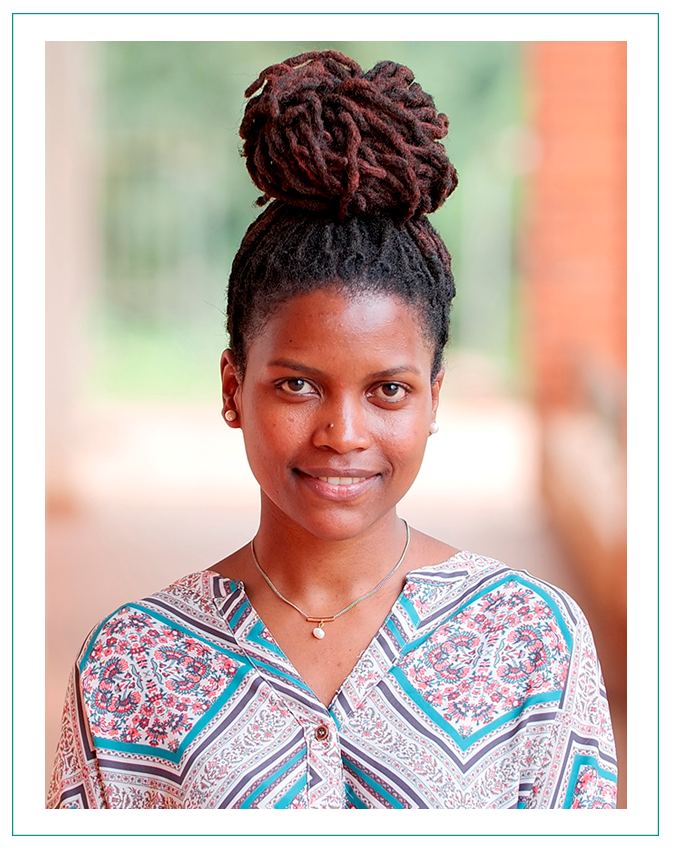
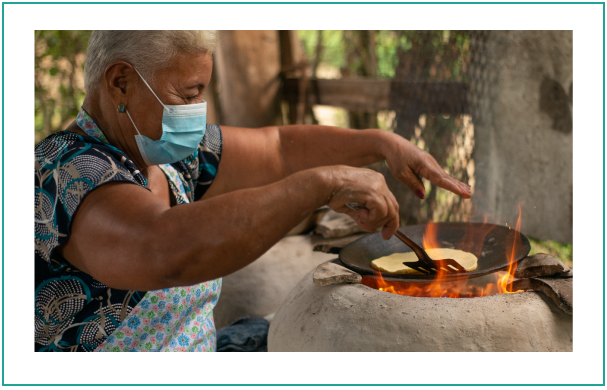
Since its creation in 2018, EARTH Futures has developed and implemented
more than a dozen models aimed at building more vibrant,
resilient, and sustainable rural communities.
Understanding that partnerships are key to success,
we have collaborated with local, regional, and global allies, reaching
thousands of farmers, farmer organizations, groups of women and youth,
and other disadvantaged groups in rural areas.
One of EARTH Futures’ key partners is the Costa Rica-United States
Foundation for Cooperation (CRUSA).
Thanks to this important alliance and CRUSA’s investment, EARTH Futures and its partners celebrated the following results in 2021:
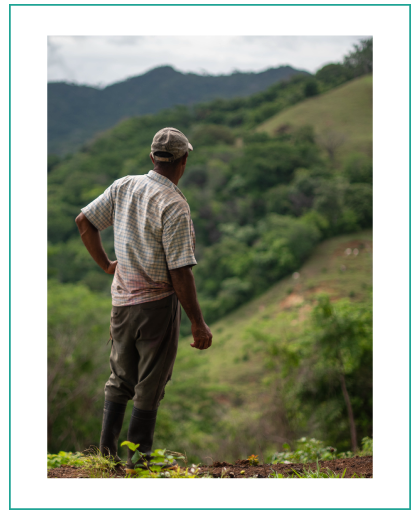
For over thirty years, EARTH University has been a leader in sustainable agriculture and environmental protection practices. Throughout its history, the University has incorporated principles of organic and regenerative farming in its forests, community, and commercial and academic farms.
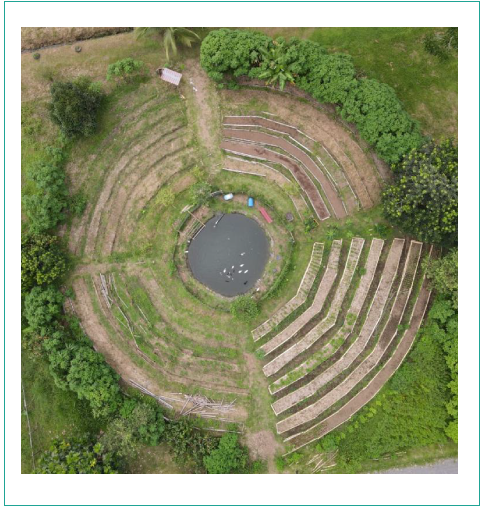
In 2020, EARTH launched a project that integrates and
advances regenerative organic practices on small cacao
farms in Costa Rica. The project was implemented
by EARTH and funded by Patagonia Provisions, a U.S.
company that supports environmental organizations
with bold, direct-action agendas aimed at building
an equitable, inclusive, and diverse environmental
movement. This high-impact initiative helped
to strengthen and recover the soil on cacao farms,
address the impact caused by the use of chemical products
on the soil, and support climate change mitigation.
EARTH launched this innovative project by carefully integrating
regenerative principles on its organic farm. For example, sheep
and ducks were introduced as a chemical-free alternative to standard
pest-control practices. Through a steady diet of pasture grass, weeds,
and insects, these animals generate manure that serves as a rich
fertilizer compost. This approach reduces the number of trucks
needed to transport fertilizers from elsewhere,
reducing greenhouse gas emissions and shortening the production chain.
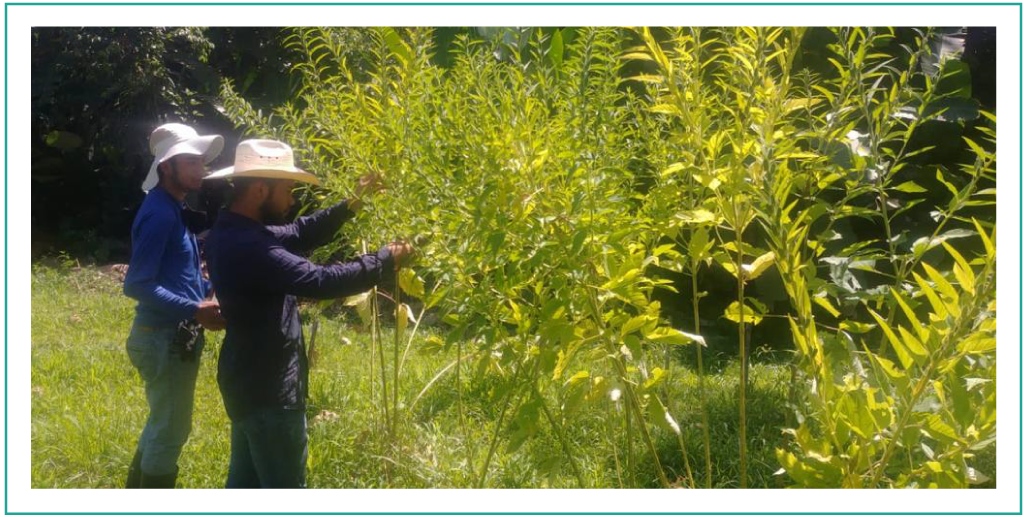
Throughout 2021, the project leaders invited 80 cacao-producing families from the province of Limón to participate in hands-on training with a focus on regenerative agriculture concepts. The training program covered topics such as soil health, land management, animal welfare, and farmer and worker labor practices while promoting the use of good agricultural practices for organic crop production and soil regeneration.
“We are delighted to support EARTH University’s important work of bringing regenerative organic practices to these small cacao farms in Costa Rica. This effort is a model for farmers who see the need to move away from chemicals and thereby are respecting the natural ecosystem, which will improve the health of their own farms and communities,” said Birgit Cameron, Head of Patagonia Provisions.
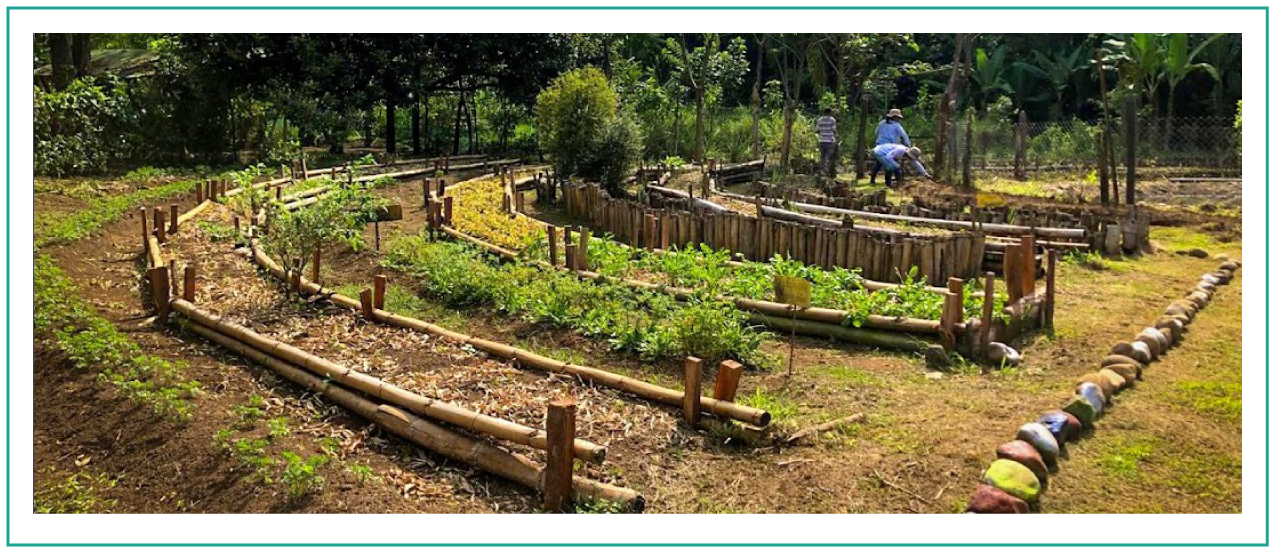
In addition to this valuable community training,
several EARTH students’
Graduation Projects in 2021
incorporated regenerative agriculture practices:
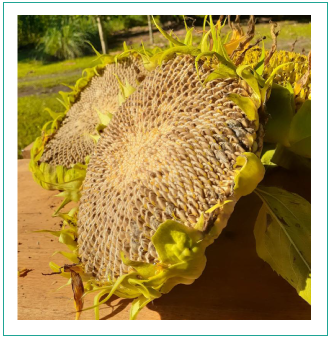
“Regenerative agriculture is not only a philosophical way of observing and conceptualizing agricultural production, but also fuses with the social sphere, human and labor rights, animal welfare, and good sustainable practices, all essential to EARTH’s principles,” said Mauricio Segura, Director of the Academic Administration.
EARTH has both the opportunity and the moral responsibility to contribute to building a world with inclusive, regenerative food systems that offer healthy food for all. We value collaborations with organizations like Patagonia Provisions that encourage innovation and smart agricultural practices. We look forward to more partnerships like this one to help us increase the impact of our mission in the years to come.
Careful stewardship of resources, together with growth in charitable gifts and commercial activities, are contributing to a healthy financial picture that enables us to fulfill our mission.
| Expenses | |
|---|---|
| Salaries and benefits for personnel | $12,492,503 |
| Operating expenses | $6,908,281 |
| Equipment | $513,809 |
| Contingencies | $34,155 |
| Total | $19,948,749 |
| Sources of Revenue | |
|---|---|
| Grants | $11,142,627 |
| Tuition paid by students | $2,832,710 |
| Other income (commercial activities and other) | $905,435 |
| Endowment | $5,067,976 |
| Total | $19,948,749 |
From its headquarters in Atlanta, Georgia, the EARTH University Foundation – a registered 501(c)(3) public charity – provides vital funding for EARTH’s educational mission, programs and projects thanks to generous gifts from a global community of supporters.
| Assets | |
|---|---|
| Cash and cash equivalents | $3,801,826 |
| Pledge receivables, net | $3,303,463 |
| Endowment and other investments | $82,342,633 |
| Other assets | $669,747 |
| Total Assets | $90,117,669 |
| Liabilities and Net assets | |
|---|---|
| Liabilities | $317,547 |
| Net assets | $89,800,122 |
| Total Liabilities and Net assets | $90,117,669 |
| Programs | Fundraising | Administrative | Total expenses | |
|---|---|---|---|---|
| Scholarships | $4,914,472 | $0 | $0 | $4,914,472 |
| Project and program expenses | $1,984,339 | $0 | $0 | $1,984,339 |
| Foundation Operations | $269,614 | $660,193 | $440,800 | $1,370,607 |
| Total | $7,168,425 | $660,193 | $440,800 | $8,269,418 |

Scroll to see the full table

“Shortly before the COVID-19 pandemic hit the US, we were fortunate to arrange a trip to Costa Rica and to visit the campus of EARTH University. While there we were able to have lunches with students, meet with faculty, visit ongoing projects and attend a graduation ceremony. We were greatly impressed with the enthusiasm and commitment of the students and the academic program they were completing. We left feeling that the University and these students can and will make changes leading to a better world. We want to encourage and support that effort.” - Jessie Harris and Woody Cunningham established a new scholarship endowment for EARTH in 2021.

“The Americana Foundation is proud of our long-term partnership with EARTH University. Over twenty years, we have supported numerous young leaders from Latin America who are now promoting sustainable agriculture, building environmental awareness, creating businesses, and making positive change in their countries. Recently, in the face of the COVID-19 pandemic, we partnered with EARTH to help keep students safe and ensure they were able to continue their studies as seamlessly as possible. We believe EARTH’s mission is more relevant now than ever, and we are proud to have supported EARTH’s resiliency through the pandemic.” - The Americana Foundation provided vital funding for COVID-related supplies such as handwashing stations, masks and tests in 2021.

“Starbucks has an aspiration to ensure a sustainable future of coffee for all and knows our future as a company is inextricably tied to improving the lives and livelihoods of farmers and their families. Many farming families have students who are eager to expand their knowledge of coffee but may not have the means to do so. For Starbucks, funding an EARTH University scholarship for a future agronomist from Costa Rica is a way for us to support the next generation of coffee farmers. EARTH’s curriculum teaches and promotes environmental leadership and encourages students to engage in innovative agricultural approaches – all aspects that are fundamental to the future of coffee farming and aligned to Starbucks’ own approach to sourcing coffee responsibly for the betterment of both people and the planet.” - After a visit to EARTH’s campus in 2020, Starbucks offered to establish a full scholarship to benefit a student with an interest in the coffee industry. This Starbucks Scholar was part of the entering class of January 2021.
We recognize and appreciate the generous support of the following donors whose gifts were received in 2021, with special thanks to those whose lifetime giving exceeds US$1 million. These individuals, businesses, foundations, governments, and international organizations make our mission possible.
Alumni Directed Gifts
† Deceased
We thank the following corporations and institutions around the world who hosted our third-year and fourth-year students as interns in 2021. The internship helps our students build critical leadership skills and networks, while deepening their knowledge and giving them the opportunity to apply the skills developed at EARTH in a professional setting.
Tawonga returned home to work as an intern at CAMFED, an organization that seeks to eradicate poverty in Africa through the education and empowerment of women and girls. Thanks to the organization’s support in her youth, she was able to finish high school and, later, study at EARTH.
“During my internship, I worked on creating an agriculture manual for Malawian girls. The manual describes how to develop an agricultural business, how to adapt to climate change, and how to responsibly manage resources. I was also in charge of working with women with small gardens, to analyze and improve their processes. Meanwhile, as part of CAMFED, I held sessions with students to talk about my experience, how I managed to get to the University and travel to other countries to train professionally. The students’ reactions were very effusive when I told them: ‘I'm Tawonga and, to arrive at my University, I have to take three plane rides.’ That inspires them.”
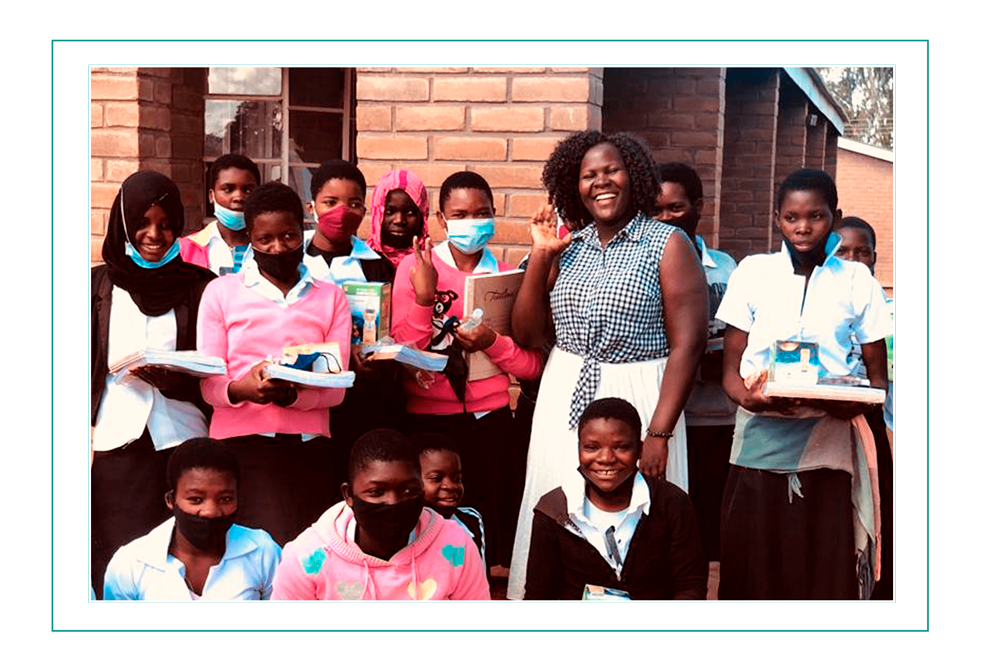

“I have always admired EARTH’s hands-on, experiential learning model. It is unique in higher education today. It is very effective in preparing students for the future that is ahead of them. They really believe that together they can change the world. EARTH attracts high quality students who have a real desire to study and learn sustainable agriculture. If you have the opportunity to visit with some of them, I believe you will walk away as I always do, very impressed.”

“I joined the EARTH community primarily because of the quality of the people I met in the administration of the University. As the importance of forming future leaders capable of addressing environmental and social issues becomes increasingly central, it is the passion and excellence of execution conveyed by EARTH’s faculty and leadership that really stands out as unique.”

“My primary interest in retirement has been supporting entrepreneurs, people with impact. When I learned about EARTH and the educational model, I saw it as an opportunity to support young people who had strong entrepreneurial instincts. When you combine that with the geographic diversity of the students, there is the ability to have a far-reaching impact. EARTH develops leaders who have a very real impact in their home communities. Supporting EARTH is the most important and rewarding thing that I do.”